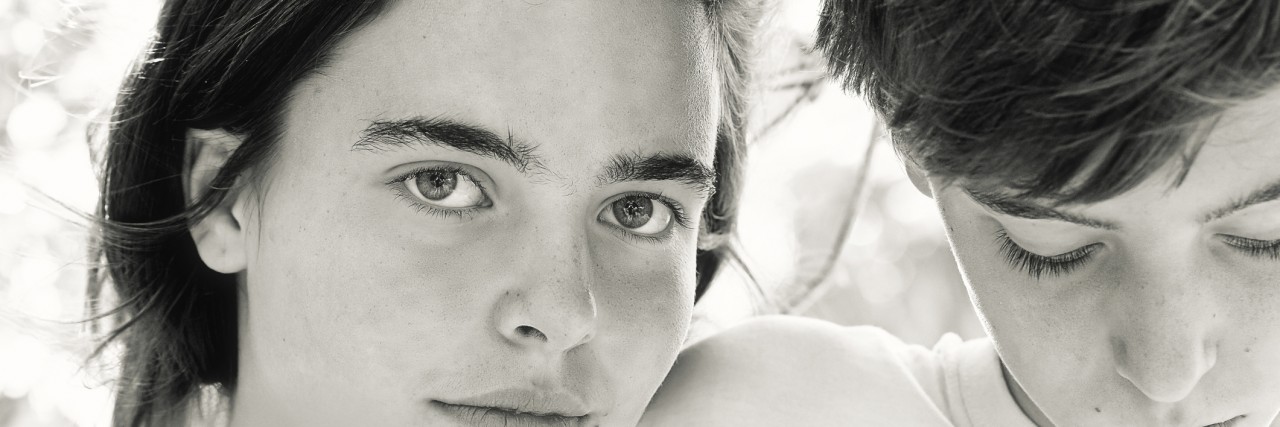How Autism 'Awareness' and the School System Failed My Brother and Me
There is a photo of me at 3 years old. I am standing in a meadow on the tips of my toes, arms scrunched up like a t-rex, hands blurred from excitedly flapping.“You were so cute!” my family members coo when they pass this photo. These are the same people who look at me and say, “You can’t be autistic, you’re a girl!”
I hit developmental milestones quite differently than others. For instance, I never learned to crawl forwards, I was speaking complete sentences at a year old and reading books by 3. I wasn’t potty trained until I was almost 4 and said to my mother, “I am finished with diapers,” and that was it. I would bolt and hide in clothing racks in stores and cry when my parents made me try something new.
Sensory wise, I was notoriously known for my aversion to dirt, anything soft, loud noises, flashing lights, and many other things. I walked on my tip-toes constantly, chewed apart all of my shirts and gel toys, rocked and spun enthusiastically. I struggled with math concepts to the point where I barely skimmed by. I used to cry constantly in preschool and elementary because I couldn’t regulate my sensory system or handle my surroundings. I was often in the principal’s office because teachers misunderstood me trying to comprehend with me being insubordinate. In middle school, when a psychologist brought up Asperger’s syndrome with my mother, she laughed and called him “crazy.”
My brother is a different story. He didn’t speak coherently until he was 4. He flapped his hands, walked on his toes, and would bolt down the street and away from my mom so often that he had to wear a leash in public. No matter the lock we tried, he would take it apart just for fun and giggle as my mom scrambled up the street to catch him as he ran right towards the backyard pond. He would find anything he could stack and climb on, often climbing on the coffee table and diving into the floor or couch. My parents covered our tiles floors with foam mats and made him wear a helmet when he was particularly riled up. He attended speech therapy, but never had a psych evaluation. Throughout elementary school, my brother struggled to pass and was a renowned trouble-maker. Our mother asked for an evaluation every year, and every year his teacher would say, “He just needs more discipline.”
It wasn’t until April of this year that my brother and I were finally diagnosed, at the ages of 18 and 12. I am diagnosed with autism spectrum disorder (ASD), obsessive-compulsive disorder (OCD), generalized anxiety disorder (GAD), and dyscalculia. My brother is diagnosed with ASD, ADHD, global developmental delay (GDD), dyscalculia, dyslexia, and dysgraphia. We both desperately needed IEPs and accommodations, but he didn’t get his until this year, and I was too far into my education to get the help that would have allowed me to achieve exponentially higher.
We need to reform the way we treat our children in the education system, and promote autism acceptance. We need to stop the fear-mongering that often comes with the “awareness” campaigns and scares parents away from helping their children and seeking a diagnosis.
We need to tell parents: this is your child, he is not broken, and she just needs different accommodations than others.
We need to teach people about the entire spectrum and how to love and accept those on it. We need to be more proactive in diagnosing autism in girls and reforming the way teachers recognize children on the spectrum.
We are not bad people. We are autistic, and we need to be seen and heard.
Image via Thinkstock.

